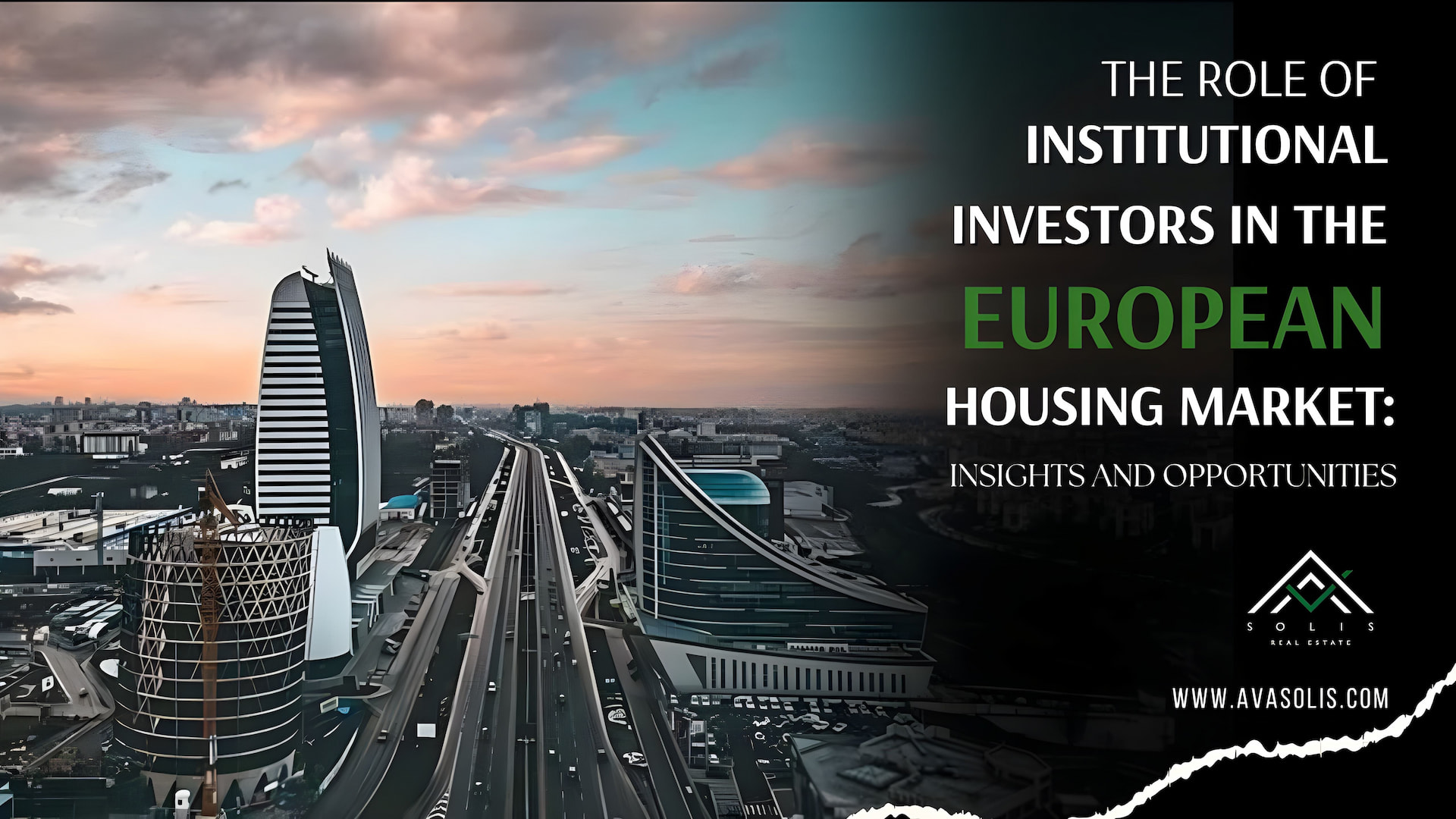Over the past decade, institutional investors have significantly increased their presence in the European housing market. Investment funds, insurance companies, and pension funds are now prominent players, particularly in major cities such as Paris, Dublin, Madrid, and key regions in Germany and the Netherlands. According to the European Central Bank (ECB), residential property acquisitions by institutional investors have more than tripled during this period. This growing footprint has profound implications for housing prices, local economies, and the transmission of monetary policy.
How Institutional Investors Shape the Housing Market
Institutional investors often acquire residential properties in bulk, a practice that intensifies demand and subsequently pushes property prices higher. Unlike private buyers, who are typically influenced by local economic conditions, institutional investors operate on a broader scale, driven by global financial trends and competitive investment strategies. This detachment from local wage dynamics weakens the traditional link between household income and property prices, especially in urban areas where large-scale acquisitions are concentrated.
The ECB's analysis highlights that, as institutional investors increase their activity, housing prices not only rise but remain elevated for extended periods. This is particularly challenging for local residents, especially first-time buyers, who find themselves priced out of the market. In cities with substantial institutional ownership, housing affordability becomes a critical issue, as rental costs also escalate.
Interaction with Monetary Policy
One of the crucial insights from the ECB’s recent analysis is that institutional investors amplify the effects of monetary policy on the housing market. When central banks, such as the ECB, lower interest rates, these investors are quick to increase their acquisitions, leveraging cheaper financing to expand their portfolios. Consequently, this behavior sustains high property prices even in periods of economic downturn, further distancing the housing market from local income realities.
Investment trends for 2025.
The PwC report: Europe 2025 Despite current geopolitical challenges and regulatory pressure, the report envisages restoring investment activity across Europe. Strategic acquisitions are expected to focus on areas with developed infrastructure and economic stability, while overvalued property markets may become subject to more cautious investment strategies.
Implications for the Bulgarian Market
While institutional investors have long established their presence in Western Europe, Bulgaria represents a relatively untapped opportunity. With its strategic location and growing urban centers like Sofia, the country offers potential for institutional investment, particularly in residential and mixed-use developments. However, to bridge the gap between global investment capital and local opportunities, professional mediation and comprehensive market insights are crucial.
How AvaSOLIS Can Facilitate Institutional Investments
AvaSOLIS Real Estate is strategically positioned to support institutional investors seeking entry into the Bulgarian real estate market. Leveraging our extensive network of local developers and construction companies, we offer tailored solutions that align with the strategic objectives of institutional clients. Whether it involves large-scale residential projects, commercial investments, or mixed-use developments, AvaSOLIS provides end-to-end support, including:
- Identifying high-potential investment opportunities
- Coordinating with reliable local developers and partners
- Offering market analysis and feasibility studies
- Ensuring compliance with local regulations and investment frameworks
- Providing legal and financial advisory services
Why Partner with AvaSOLIS?
Our expertise in the premium real estate sector and our commitment to transparency make AvaSOLIS a trusted partner for international investors. We understand the complexities of navigating new markets and offer a seamless experience from initial consultation to final acquisition. Our focus is not only on facilitating transactions but also on building sustainable investment strategies that align with global financial objectives.
Conclusion
As institutional investors continue to shape the European housing landscape, proactive and strategic partnerships will be essential for accessing emerging opportunities. AvaSOLIS Real Estate remains at the forefront of connecting global capital with local expertise, ensuring that investments are not only profitable but also sustainable in the long term.
If you are an institutional investor looking to expand your portfolio in Bulgaria, we invite you to connect with AvaSOLIS for a comprehensive consultation.

